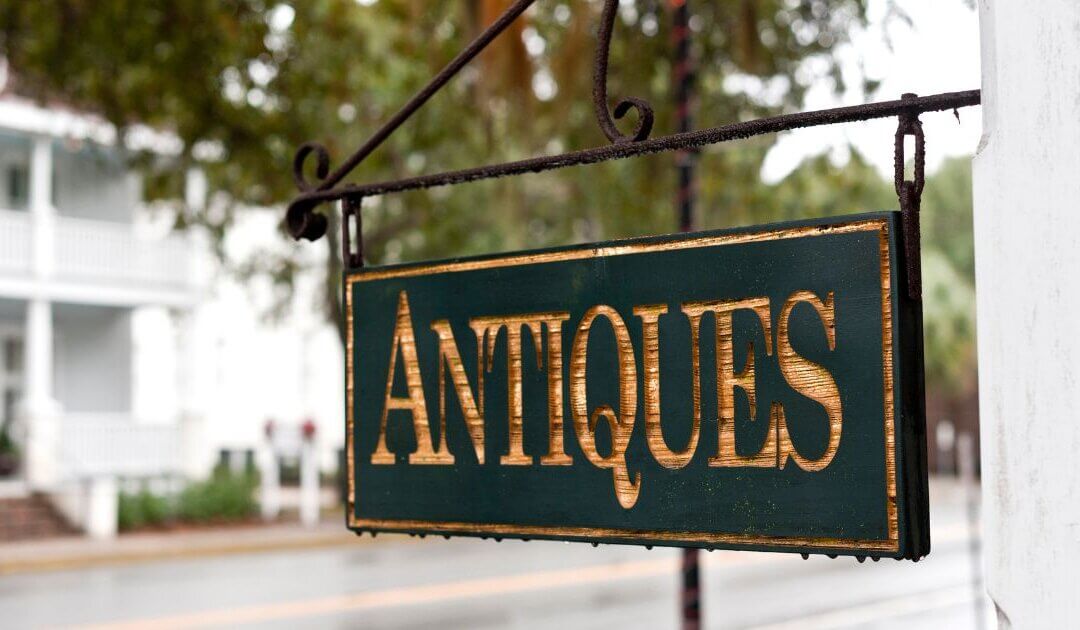A Beginner’s Guide to Selling Antiques
If you have a passion for objects from bygone days and a fascination with the stories they hold, learning how to sell antiques could be the perfect venture for you. Whether you dream of building a small home business or have higher ambitions of becoming a full-time antique dealer, understanding the basics of selling antiques is essential for success.
Selling antiques isn’t just about finding a dusty item and putting it on a shelf with a price tag. It involves knowledge, research, strategy, and a passion for history and craftsmanship.
Use our guide below to get started.
How To Sell Antiques
Why Do You Want to Sell Antiques?
Before you start, ask yourself what attracts you to the antique trade. Are you looking for a creative hobby, a side income, or a new career path? Your motivation will shape how much time, energy, and money you invest.
How to Start an Antique Collection
Most antique dealers begin by building a personal collection. Focus on items that genuinely interest you—whether that’s vintage jewellery, antique furniture, rare books, or collectables. The more you care about your collection, the more knowledgeable and convincing you’ll be when it comes time to sell.
Educate Yourself About Antiques
Knowledge is the most powerful tool in the antique trade. Learn how to spot authentic pieces, assess condition and provenance, and understand how different eras and styles impact value. Study books, visit museums and exhibitions, and spend time in antique shops and auctions.
How to Assess the Value of an Antique
Pricing antiques can be tricky. Factors like rarity, condition, maker, age, and demand all influence value. You will need to be able to spot valuable pieces and, just as importantly, avoid overpriced or fake ones.
Where to Buy and Sell Antiques
Buying opportunities include:
- Auctions: Public auctions are a common way to find antiques. Learn how to research auction catalogues, set a budget, and bid smartly.
- Markets and Fairs: Antique fairs and flea markets can be treasure troves.
- Private Sales: Estate sales or private collections can yield special finds.
- Online: Sites like eBay, Etsy, and specialised antique websites offer various goods.
When it comes to selling, you can open an online store, rent a stand at antique fairs, or even start your own brick-and-mortar shop.
Choosing Your Niche
The antique market is broad. Some dealers specialise in specific periods like Georgian or Victorian, others in items like militaria, ceramics, or textiles. Picking a niche can help you build a reputation and attract loyal customers.
What Equipment and Investment is Needed when Selling Antiques?
Setting up a small antique business doesn’t require a massive investment, but you will need essentials like:
- A reliable computer and internet connection (for online selling)
- Good quality camera equipment (for photographing items)
- Access to storage space
- Basic packaging materials
- Transportation for attending fairs or auctions
- Adequate insurance for worst-case scenarios, such as breakages or theft.
The initial outlay can vary, so starting small and reinvesting profits is often wise.
General Tips for Success in Selling Antiques
- Stay curious: The antique world is constantly evolving.
- Be honest: Integrity builds long-term trust.
- Network: Join collector groups and trade associations.
- Keep good records: Track your purchases, sales, and expenses carefully.
Learning how to sell antiques is a rewarding journey filled with fascinating discoveries and exciting challenges. Experience is vital when selling antiques, but formal study can fast-track your expertise.
Take a Formal Course in How To Sell Antiques
If you want expert-led training and a deeper understanding of the trade, check out the Understanding Antiques Course at Regent Academy. It’s designed for beginners and covers everything you need to get started and thrive in the world of antiques, including:
- How to start a collection
- How to learn more about antiques
- Assessing the value of an object
- Buying antiques at auction
- How to sell antiques
- The equipment and outlay needed for dealing
How To Sell Antiques Home Study Course

Understanding Antiques
Hit the button below to find out about current Antiques course to provide you with the skills, knowledge, and practical experience needed to launch your career.
Our distance learning courses allow you to study from home at your own pace.
Student Success Stories
Related Articles
How To Become An Interior Designer
How To Become an Interior Designer In this guide, we’ll explore how to become an interior designer, the importance of enrolling in quality interior design programs, and how Regent Academy’s Successful Interior Design Course can help you achieve your goals. If you have...
Home Study Fashion Design Courses
Unlock Your Creativity with Fashion Design Courses at Regent Academy Embarking on a journey into the world of fashion design is both exciting and rewarding. Whether you're a novice or looking to enhance your existing skills, choosing the right course is crucial....
Become a Civil Celebrant
How to Become a Civil Celebrant: A Step-by-Step Guide If you have decided you want to become a Civil Celebrant, you are in for a rewarding career choice. What is a Civil Celebrant? A civil celebrant is a professional who creates and conducts meaningful ceremonies,...




